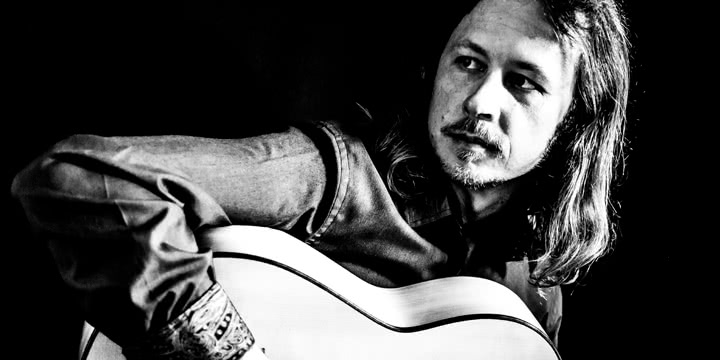Chances are, if you were asked to think of flamenco music, you’d immediately conjure up an image of a beautifully costumed woman dancing wild circles around a man playing furious guitar.
It summons images of passion and desire, of love and revenge…
Or at least, that’s the traditional image of flamenco. Though it has held onto a strong element of its heritage, the music has evolved over the years, courting influences from across the globe. For Damian Wright, the bandleader of (you guessed it) the Damian Wright Trio, playing the Spanish guitar has been a lifetime’s work.
“I started playing the guitar when I was six,” Wright recalls. “I played everything from rock to metal, to classical and jazz. I was always interested in playing different styles, and I think it was only a matter of time before I found flamenco as a teenager.
“In the house we were always listening to a huge variety of music,” he continues. “Everything from classical to Middle Eastern to South American music. There was always an interesting variety, so I think when I heard flamenco, it was a style that didn’t necessarily sound that exotic. I felt like I’d been listening to that for a long time. Then, when I first heard it in a live setting at the Opera House, that was when I saw a guitar style that had all the elements of music that I loved.”
Flamenco is a style of music that has been embraced the world over, and part of the secret to its longevity, Wright believes, is the fact it can be remarkably malleable. It’s not just within contemporary flamenco that such an element of flexibility can be found – its entire history is one long evolution.
“Flamenco has always been a progressive music,” Wright argues. “From the very beginning, the people who most associated with flamenco outside of Spain left Northern India, and it took about a thousand years to get to Spain.
“Through their travels they brought a huge influence, and that was mixed with the fact there was already a huge influence from the Moorish rulers at the time. So you had that mixed with previous Christian traditions that already existed, and so that all came together and turned into what it called flamenco today.
“When you say flamenco, there is a very traditional sound, which is very deeply rooted in southern Spain, and that’s what the purists are essentially practising,” he continues. “But then the younger generations over the years have always progressed flamenco forward and now you have flamenco players that are collaborating with famous dancers; you have flamenco guitarists writing across rock and jazz: there’s all sorts of genre bending.”
This is precisely what audiences should expect from the Damian Wright Trio. Each member of the act is besotted with the potential of flamenco music and their disparate tastes ensure a performance of a wild and seductive variety.
“I absolutely love everything from Radiohead to Debussy,” says Wright. “There are so many influences I’ve grown up with that I think of now whenever I’m writing. Flamenco music lends itself to a deep connection with certain emotions and feelings, a huge variety of sentiments that everyone can relate to. That’s why words like passion and fire get thrown around, because it’s a music that stems from that feeling. I think any successful performance of flamenco has to have those elements, and that’s what we’re always striving to achieve. There’s nothing subdued about the show. It’s three musicians working together to create that fire.”
Damian Wright Trio plays atVenue 505 on Saturday September 17 as part of Sydney Fringe. Get your tickets here.


































